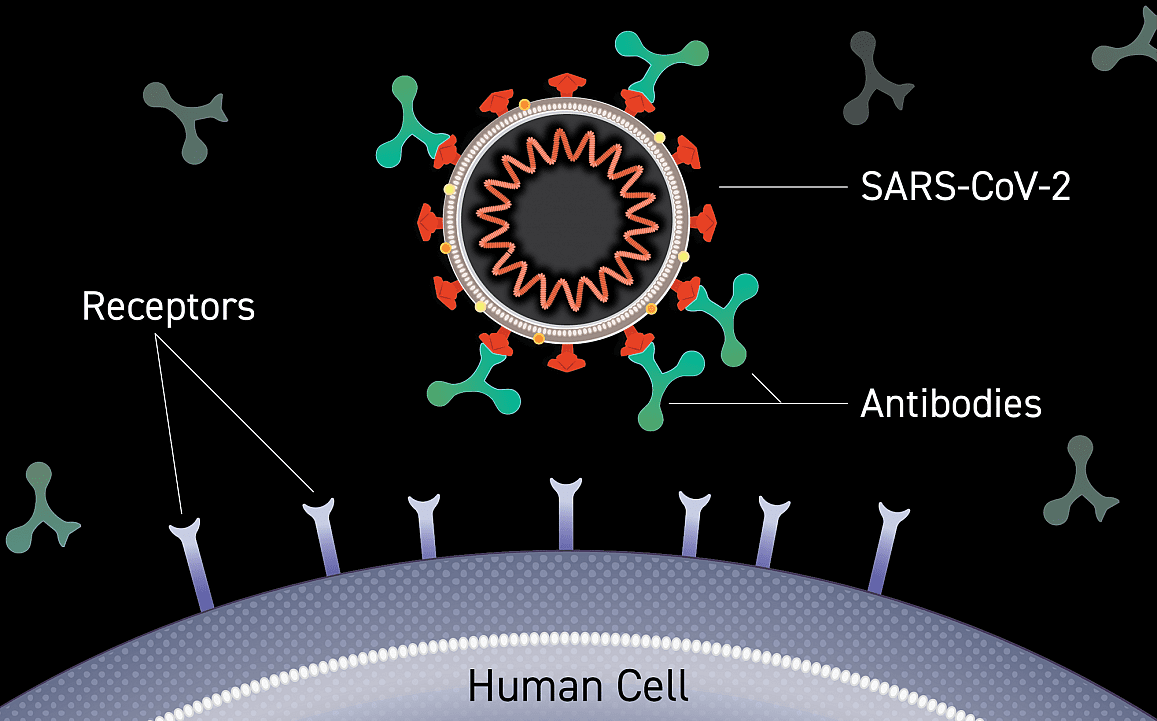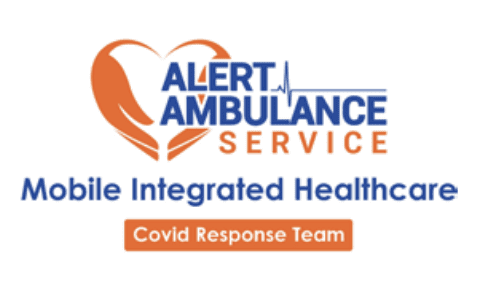Search Posts
Recent Posts
- Rhode Island Weather for June 15, 2025 – Jack Donnelly June 15, 2025
- To honor Pawtucket Mayor Henry Kinch: A tribute to leadership and legacy June 15, 2025
- Ask Chef Walter: Summer Feast for the Palate – Chef Walter Potenza June 15, 2025
- A Greener View: Floppy Perennials, Holey Vegetables and Wet Soil Gardening – Jeff Rugg June 15, 2025
- Gimme’ Shelter: Old Bay at the Providence Animal Control Center June 15, 2025
Categories
Subscribe!
Thanks for subscribing! Please check your email for further instructions.

EARLY COVID treatment with Monoclonal Antibodies. Options in-hospital, outpatient, at home
Photo: NIH, .Lisa Donohue, CoVPN
Treatment for COVID-19 with monoclonal antibodies is gaining in awareness as the virus is impacting more people with the recent variant. In Florida, with the highest infection rate in the US, infusion clinics are being set up – some in public libraries – to reach everyone who needs the treatment from having the disease progress, especially for those at high risk for serious complications. Treatment is available regardless of vaccination status (for breakthrough cases, too).
The recommendations aren’t uniform, however. Yesterday, the RI Department of Health sent out information “reminding the public that fast, easy, highly effective treatment is available for people 12 years of age and older who become sick with COVID-19“.
In their recommendation they note that “this treatment helps prevent people from developing severe illness and getting hospitalized. After completing this infusion treatment, many people with COVID-19 start feeling better as early as the next day. This treatment does not require hospitalization”.
“Along with vaccination and testing, treatment is one of the main tools we have to manage the COVID-19 pandemic and keep people out of the hospital,” said Director of Health Nicole Alexander-Scott, MD, MPH. “As soon as you have COVID-19 symptoms and test positive, talk to a healthcare provider about whether you should get treatment and where you can get it.”
Treatment as outpatient – or at home:
They also note that if you don’t have a regular healthcare provider, visit health.ri.gov/find/urgentcare or schedule treatment directly with Atmed Urgent Care in Johnston and East Greenwich, RI at www.atmedurgentcare.net.
Additionally, treatment at home may be available through Alert Ambulance. The earlier someone starts treatment after symptoms the more effective it is, so people should get tested as soon as they have symptoms.
Learn more about treatment at COVID.ri.gov/treatment.
Monoclonal Antibody Treatment
Monoclonal antibody treatments are available for outpatients with mild to moderate COVID-19 who are at high risk for progressing to severe disease and/or hospitalization. Providers should consider whether patients who test positive for COVID-19 are candidates for monoclonal antibody infusion treatment. Providers can refer eligible patients directly to either location. Click here for a referral form.
For partially or fully vaccinated people who get COVID-19, being vaccinated should not affect COVID-19 treatment decisions or timing. People who are 12 years of age and older who are not vaccinated against COVID-19 should get vaccinated as soon as possible. More information about vaccination is available at C19vaccineRI.org
More information on this developing treatment protocol is available, here: https://covid.ri.gov/covid-19-prevention/treatment
At Hasbro Children’s Hospital
While infusion therapy is available for young people over the age of 12, younger children may be able to be treated at Hasbro Children’s Hospital. This is for appropriate pediatric patients who recently tested positive for COVID-19, and is part of a new national study to set dosing and treatment standards for younger children.
Those younger than 12 should have had a positive test in the last 72 hours and have had mild to moderate symptoms within 7 days. They should not have needed oxygen or been hospitalized.
At Lifespan facilities
Lifespan’s information differs somewhat in that they are recommending the antibody treatment for those who have only been exposed, but are at high risk for complications and hospitalization if they were to get COVID. They need to have tested negative and be asymptomatic. Patients should not be fully vaccinated – or – expected to not be able to develop an adequate immune response. They note, “Studies have shown that these antibodies may reduce the risk of symptomatic infection after exposure to the virus in high-risk patients. The State of Rhode Island has received a limited supply of these medications for use, and the available inventory has been divided among hospital systems across the state.
Patients should be referred by their primary care provider or urgent care provider and will be further evaluated by the hospital’s infusion center team on meeting the criteria for treatment.
There treatment process is a series of 4 subcutaneous injections delivered in the outpatient setting.
For more details: https://www.lifespan.org/centers-services/coronavirus-covid-19/covid-19-monoclonal-antibody-infusion-centers
Care New England facilities
While Care New England was providing infusion treatment, their website has a notice that they are no longer providing it at this time – and referring people back to the RI Department of Health (we have inquired of CNE to learn why).
Independent Hospitals
A quick check of their websites did not show any information on infusion therapy – (developing – as we go to press no further information was available, though we will update as information is provided).
Westerly Hospital
Westerly Hospital offers monoclonal antibody infusion treatment for those who may be at risk for developing a more severe form of the virus but are not yet sick enough to be hospitalized. Treatment is one dose of the medication through a vein (intravenous or IV infusion) and patients can return home after a brief monitoring period, but should have someone else drive them home.
Patients must be at least 12 years old, weigh at least 88 pounds, and have a documented positive result of a direct SARS CoV-2 viral test within the last 10 days. Patients who meet this criteria and are over 65 years of age are eligible. Those under 65 must meet a list of criteria – see “Who is eligible” at: https://www.ynhhs.org/patient-care/covid-19/patient-care/Monoclonal-antibodies
Thundermist
Thundermist is an infusion center noted on the Health Dept’s website. https://www.ynhhs.org/patient-care/covid-19/patient-care/Monoclonal-antibodies – their program notes they provide “treatment of mild to moderate coronavirus disease 2019 (COVID- 19) in adults and pediatric patients (12 years of age and older weighing at least 40 kg) with positive results of direct SARS-CoV-2 viral testing, and who are at high risk for progressing to severe
COVID-19 and/or hospitalization.
At Home Treatment

In-Home monoclonal antibody treatments for Rhode Island residents who test positive for COVID-19 are available through the Alert Ambulance Service. Their Mobile Integrated Healthcare team is now offering in-home REGEN-COV (casirivimab and imdevimab) monoclonal antibody treatments for qualifying patients who have tested positive for COVID-19 and are at high risk for severe COVID-19 symptoms or may need to be hospitalized.
To schedule an appointment:
1. Have your physician or healthcare provider fill out the ALERT MAB REGEN-COV ORDER AND CONSENT form. (https://health.ri.gov/forms/referral/MABS-consent-form.pdf)
2. Have your physician’s or healthcare provider’s office email the completed form by secure email to AlertMIHC@AlertEMS.com or fax it to 401-384-7350.
3. Once we receive your completed form, one of our clinicians will contact you directly to discuss treatment and schedule your in-home infusion.
Once your in-home infusion has been scheduled, one of our experienced Registered Nurses (RNs) will come directly to your home to take vital signs and perform your infusion. These infusions typically take 20-50 minutes or longer. The RN will also monitor you in your home and repeat your vital signs after the infusion. All of our RNs
are trained to respond to and carry medication for an allergic reaction to the treatment.
If you have questions, please email AlertMIHC@AlertEMS.com or call one of our experienced RNs at 401-862-6689 for more information.
Cost for Treatment
The RI Dept. of Health notes: “The cost of MABS treatment is covered for Medicare beneficiaries, but healthcare facilities may charge a fee for to give the treatment. People who don’t receive Medicare should contact their medical insurance provider about treatment costs and should also speak with their healthcare provider who orders the treatment.”
Please check back as this is a developing story, the program is having changes as the treatment protocols change.

In the State of RI it is taking many people over a week to get their Covid-19 test results. They do not give the rapid tests to people who have symptoms. How will this help anyone if it needs to be started quickly (when you first have symptoms) and by the time people have results, a week later, they may now be too ill?
We will ask this question of the RIDOH – thank you for the information.